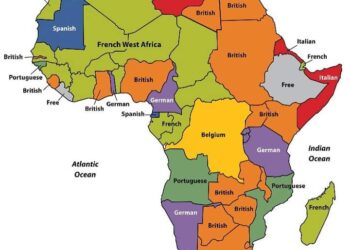UJI ABDULLAHI ILIYASU analyses reports on the Nigeria’s standard of education and reports that proliferation of secondary schools in the country reduces quality and welcomes the establishment of secondary schools board for effective control and supervision.
Background
At every given opportunity, stakeholders in education and even those who hardly understand what education really is affirm that the nation’s standard of education has fallen. Unfortunately, these commentators hardly tell their compatriots what factors were responsible for the failure in the education sector.
The standard of education is apparently falling, but to the core educators, it is rising because school curriculum is getting richer by the year. What the novice think lead to this imagined fall are offshoot of progress made in education. The use of Short Message Service (SMS), manipulation of mobile phones and computers that eclipsed letter writing for example, are progresses recorded in education, which result from attaining a more advanced level of technology. All those complaining of a fall in education standard wouldn’t want us to go back to live in thatched roofs, use donkeys as means of transportation and drink water for streams instead of using corrugated iron sheet, vehicles and boreholes or pipe borne water.
The number of factors some administrators listed as contributing to fall in education quality is as treated below.
Students’ lateness to school
One of the challenges school administrators face is the lack of commitment to time by the students. Students come to school unchecked. This is one of the major problems principals face in secondary schools. Students who come late to school are not disciplined, inn most cases. If there is no discipline, there won’t be worthwhile achievement in school. So principals of secondary schools should partner with the Parents Teachers Association (PTA) of their schools to let parents know the importance of punctuality to school. When a student is punctual to school, he learns a lot from the school. Most students who achieve higher grades in school are those who are punctual in school and well behaved. It is the pride of principals to see that all their students are higher achievers in their academic pursuits.
In order to check lateness to schools principals should also meet with the traditional rulers in their areas to talk with the parents on the need for their students’ punctuality in schools. The ruler as the custodians of the people’s social and cultural norms can enlighten the parents through the traditional medium of message dissemination so that punctuality in school will form part of their learning experiences. This issue of laziness and indifference to academic activities is most prevalent in day schools. Therefore, it is pertinent if the government can discourage day school system to avoid distractions at home.
ill-equipped Science laboratories
This is one of the challenges staff and students in secondary schools face. Schools that claim to be science-oriented have poorly equipped science laboratories or not at all. It is important to note that chemicals in the laboratories cannot be kept for a long time; therefore, there is need for constant replenishment of the science equipment in the laboratories. The equipment become obsolete with time, this is the reason many principals should, like Oliver Twist, ask government to help in replenishing them. Or the school’s PTA can help to do that to complement government’s effort.
Some principals take this challenge with the urgency it demands while others look the other way because it is not their business. Once they have their pay and allowances at the end of month they are OK.
Some principals posted to science schools found that there were no practicals on the student timetable and said nothing. It is an anomaly that Science practicals are not reflected in student timetable in a science school
“When I arrive my present school, I found that there were no practicals on student timetable. I was amazed. I hit the ground running on the aspect and now we have Science practicals for each class at least once in a week.
“We need more Science equipment. Luckily, recently I had been called from Lafia that the state government had procured Science equipment for science-oriented schools. We shall soon assess the equipment,” a principal of science school who preferred anonymity to Blueprint.
He said further said, government is making a lot of effort on their own part. The problem is maintenance.
“The maintenance culture in the country as it affects government property is generally bad.”
Neglect of sports in schools
Sporting activities is an important aspect of a student life because all work without play makes jack a dull boy. In Nigeria most educators tend to focus attention only on the cognitive aspect of education at the expense of the other two aspects: the affective and the psychomotor domains. A serious administrator who found that sporting activities were not going on in the school, should have discussion with sports master and games prefect to find the problem that the school is facing in terms of sporting facilities. If it is possible to be solved he should not wait for the government.
Most private schools in the country have very small compound that is not even big enough to hold the morning assembly how much more of sporting activities. One of the first requirements for granting approval for the establishment of schools should be the availability of sporting field and facilities. Education is not complete if only the cognitive aspect is developed, leaving the potential talent of the students.
Encouraging girl-child education
The north is far behind in terms of educational attainment compared with its compatriots in the south. Here, some parents still believe that the education of the girl-child ends in kitchen, though a lot of sensitisation have been done on that. Considering the importance of girl-child education, the idea of all boys secondary school in a given community should be discouraged, but all girls secondary school could be welcome, in the north where parents suspect that their daughters will become wayward in coeducational institutions. At present, in schools that are not gender-biased, the girls seem to have outnumbered the boys. School administrators should keep emphasising the importance of girl-child education to parents in a number of fora, especially at PTA meetings. Remember that education philosophers say when you educate a man you educate an individual, but when you educate a woman, you educate a nation. Women have more time to be available at home to educate the children than the father who is usually away to work and places where he carries out his livelihood for the family’s survival. In some communities their policies have helped to reduce the gap, yet the advocacy for the girl-child education should not stop so that girls can choose career in all disciplines.
Secondary schools commission
The establishment of secondary schools commission is long overdue.
In may the federal government approved the establishment of a National Commission for Secondary Schools(NCSS), to regulate secondary school education in the country.
The Minister of Education, Mallam Adamu Adamu, stated this during his valedictory press briefing aimed at revealing his achievements in the last four years.
The minister who disclosed that over the years, there have been clamour for the establishment of such commission to take responsibility for the regulation of secondary school education in the country, added that President Muhammadu Buhari has assented to the bill and the implementation would commence immediately.
“There had been clamour for the establishment of secondary schools commission that will take care of secondary school problems like their higher schools counterparts. And now we have got it. Look at the universities, the polytechnics and colleges of education; they are more effective because they have bodies responsible for their running. You know education problem at the government level is general for all schools. So if you have a board that is responsible for management and control, that will liaise with government directly on your behalf, and you become more effective.
“Look at State Universal Basic Education (SUBEB), it is doing well in solving the problems of primary schools, so if secondary schools have a board of their own, they become more effective and have directions towards achieving their visions,” the principal further said.
Education quality
The quality of education which many mistaken for standard, in the past was higher than what we have now because in those days schools were not many. So there was effective control over students. But now there have been proliferation of secondary schools all over the country, government and private. You now see schools where you don’t expect to see one. Thus management became a problem, and definitely quality is compromised. In the past, you left village to distant areas for education. Definitely, when you left your parents’ house to a far place for schooling you would always bear in mind the reason why you left your house. You are more disciplined and well-behaved in places far from your home because you don’t have relations there. With schools at the doorstep of every student, they are likely to be undisciplined, and with the proliferation of schools, students transfer from one school to another. One who is not promoted moves to the next school and get the promotion. Therefore, the proliferation reduces the quality. Though the government and private individuals have good intention of building schools, they should not have overdone things by weighing its disadvantages.
Between government and private schools Private schools are business-oriented. Individuals run them for profits, while public schools are social services. In that case, private schools are better managed in terms of finances and control. Bureaucratic bottleneck is less in private schools than in government schools. In public schools, the administrators wait for the government to do things because they are not profit-making outfits, but social services. If what a public school requires is not getting done, the school officials are helpless. There is little they can do. They continue to wait until something is done. In private schools, they know that every cost they incurred will be recouped after. Proprietors are the bosses of themselves, so they have more intensive inspection. The proprietor pays staff depending on their efficiency. Though public schools also have inspectors from the area inspectorate office, quality assurance office and the ministry of education, these agencies face challenges because of the huge responsibility place on them. For example, they can supervise adequately in township schools, but what of the remote and riverine areas? The means of transportation for the inspectors is one of the major problems that hinders effective supervision, so if government provides adequate transportation system for area inspectorate offices, it will go a long way in ensuring quality in public schools like their private counterparts.
Student achievements
Students who perform well in their academic pursuit believe in hardwork and dedication, which is key to success. A student, who is hard-working, can surmount any obstacle in his programme. Because if you have dedication you can achieve anything you put forward to achieve. For example, students who desire to graduate with first class degrees in universities, start their working towards their goal on the very day of arrival in the school. Those who are indifferent to classrooms are mindless of assignments and tests and even lectures.
In all, while learning experiences are going down the standard is undoubtedly rising in the sector.



